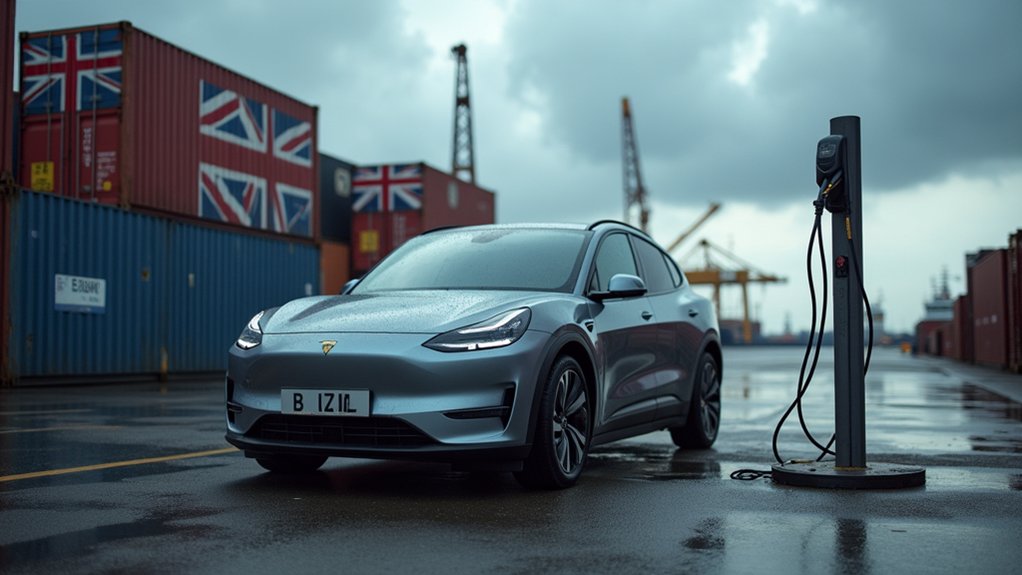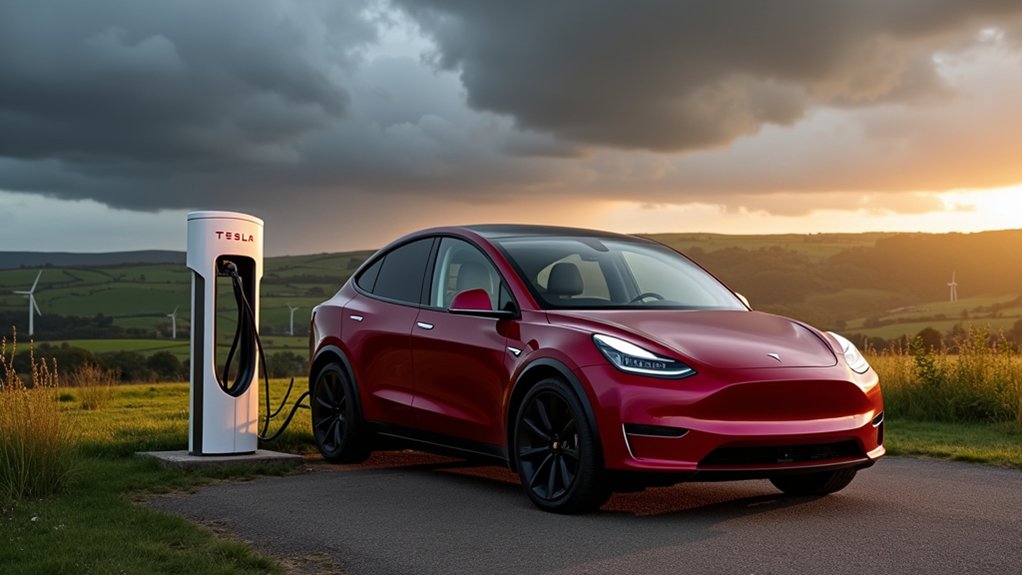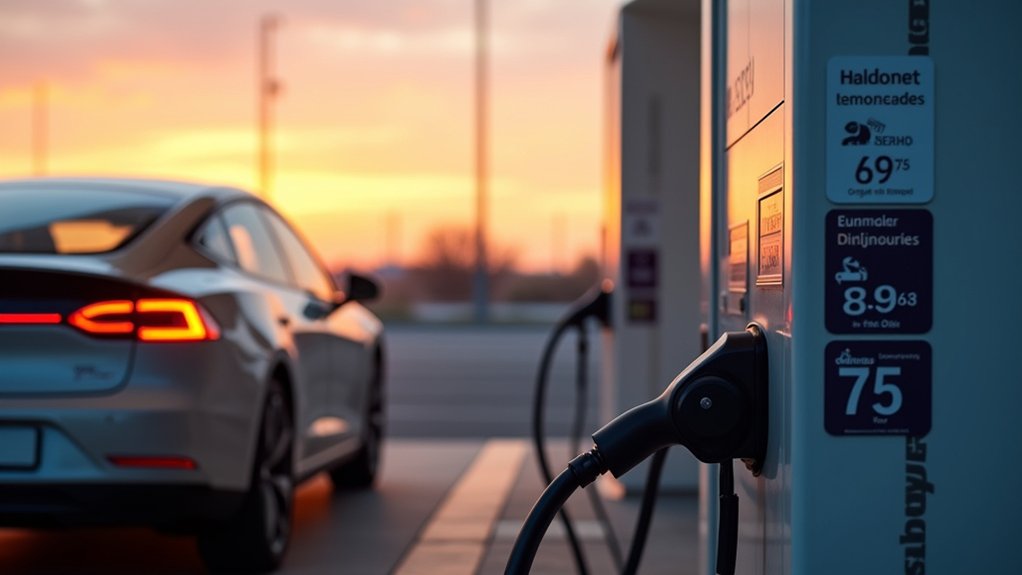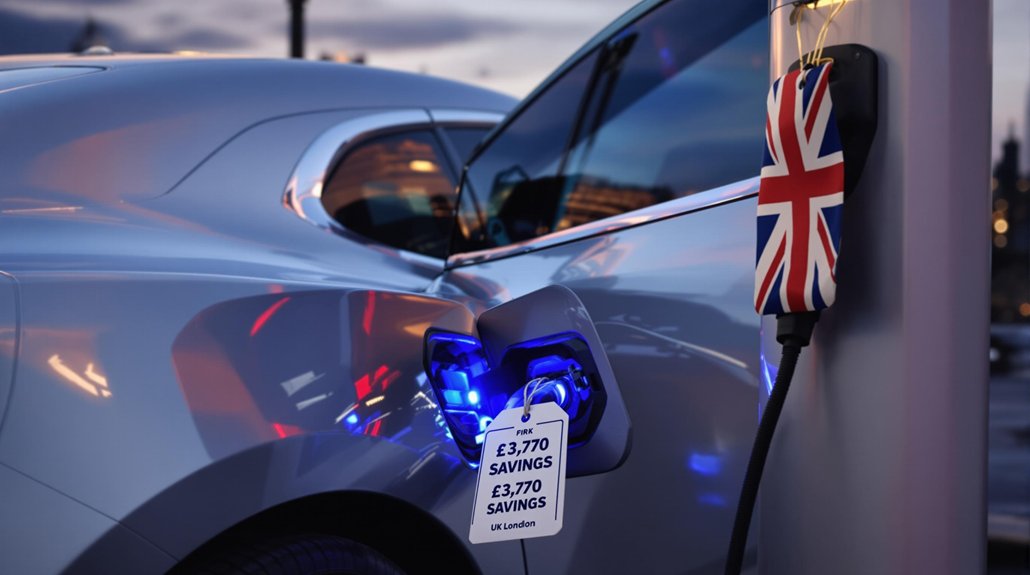While the UK government implements significant changes to its Zero Emission Vehicle mandate, providing manufacturers with greater flexibility to meet electric vehicle targets, the automotive sector simultaneously grapples with the impact of Trump’s punitive 35% tariff on British-made vehicles entering the American market.
The revised mandate now allows automakers to borrow abilities from 2024-2026, with repayment permitted through 2030, creating a vital breathing space for an industry under pressure.
These modifications appear strategically timed, considering the U.S. tariff structure—a combination of 25% auto tariff plus 10% general import tax—that’s severely impacting British automotive exports. The £2.3 billion government support package for domestic EV manufacturing couldn’t have arrived at a more crucial juncture. I’ve observed that such policy adjustments typically follow economic shocks of this magnitude.
The mandate’s new flexibility extends to permitting transfers between non-ZEV and ZEV credits until 2029, while hybrid vehicle sales have been extended to 2035. Micro-volume manufacturers like Aston Martin and McLaren—quintessentially British marques with limited production capacity—receive complete exemptions from compliance requirements. The UK has also reduced penalties for non-compliance from $18,900 to $15,100 per vehicle that falls short of standards.
Despite these concessions, the government maintains its 2030 deadline for banning new petrol and diesel car sales, demonstrating a commitment to decarbonization goals even amid economic pressures. This balancing act has drawn mixed reactions, with industry leaders praising the regulatory flexibility while environmental groups express concerns about potential setbacks to carbon neutrality targets.
Prime Minister Keir Starmer’s characterization of a “new era of global insecurity” contextualizes these policy adjustments within the broader economic landscape. The private sector’s £6 billion commitment to chargepoint development suggests industry confidence despite the transatlantic trade tensions. The deployment of ultra-fast chargers throughout the UK will significantly reduce charging times, addressing a key consumer concern about EV adoption.
The mandate changes represent a calculated compromise: maintaining environmental ambitions while protecting a crucial export industry from unprecedented tariff barriers. For British automakers maneuvering both the shift to electric mobility and turbulent international trade waters, these adjustments provide essential regulatory relief without abandoning the climate-focused transformation of British automotive manufacturing. The increasing EV market growth in the UK, with sales up over 40% year-on-year, demonstrates consumer adaptation to the changing automotive landscape.









